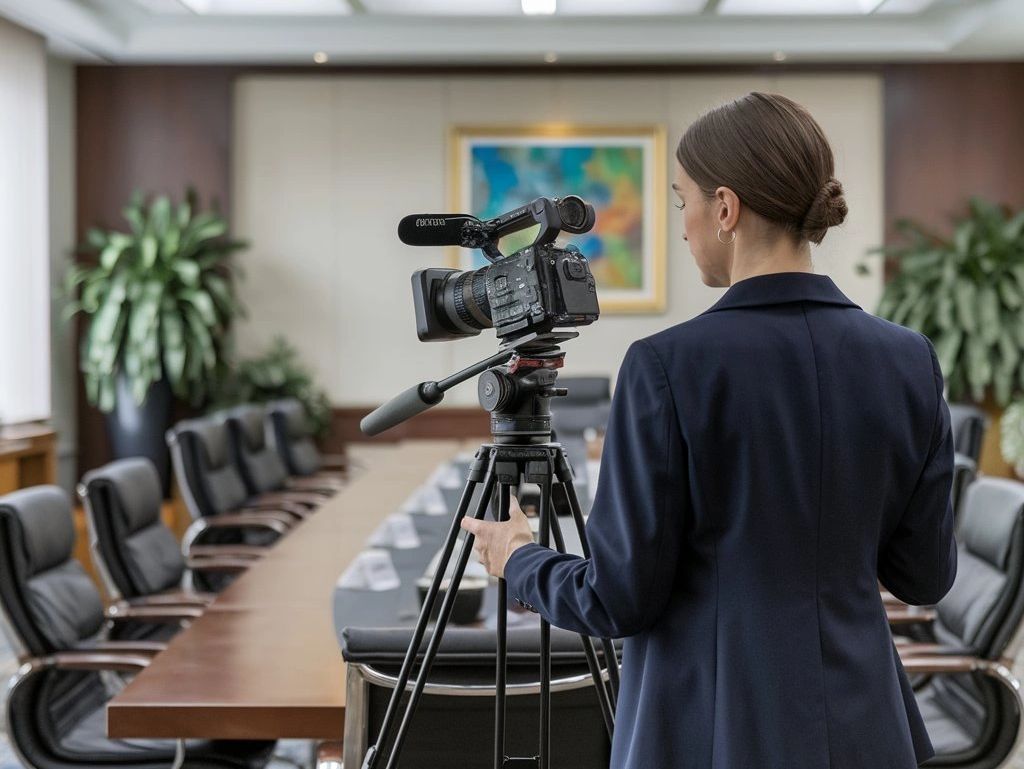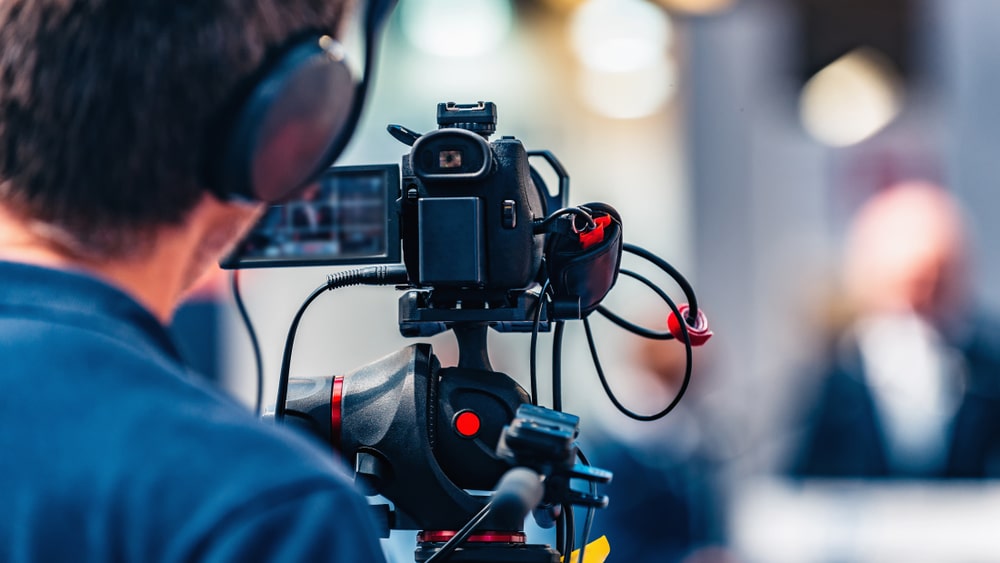How judges and juries evaluate credibility through legal video depositions
Wiki Article
The Importance of Lawful Video Clip Depositions in Modern Legal Solutions: What You Should Know
Lawful video clip depositions have ended up being important in today's legal landscape. They give a multidimensional sight of witness statements that traditional records just can not match. By recording both non-verbal and verbal interaction, these depositions boost the overall understanding of a witness's credibility. The efficiency of video clip depositions hinges on different elements, consisting of compliance with lawful standards and finest techniques. Exploring these components reveals their real importance in modern-day legal solutionsWhat Are Lawful Video Depositions?
Lawful video clip depositions act as a crucial device in the litigation process. They entail recording witness statements in a video clip format, capturing both spoken and non-verbal communication. This approach allows attorneys to document the temperament, expressions, and reactions of witnesses, supplying a richer context for the testament. Typically conducted in a controlled environment, these depositions are led by lawyers that ask questions while a court reporter documents the dialogue. The resulting video can be vital for test prep work, as it enables lawyers to evaluate the reputation of witnesses and improve their strategies. Additionally, legal video clip depositions can be used in numerous lawful contexts, varying from civil disagreements to criminal instances. The auditory and visual aspects of video depositions improve the presentation of evidence, making it a vital element in the contemporary legal landscape. On the whole, they contribute considerably to the efficiency and efficiency of lawful procedures.
Advantages of Video Depositions Over Standard Approaches
Video depositions offer various advantages compared to traditional approaches of taking witness testaments. One substantial advantage is the capability to catch both audio and aesthetic elements, providing an extra detailed document of the witness's statements. This dual layout improves clarity and allows attorneys to reference particular nuances throughout trial preparation. In addition, video clip depositions assist in remote participation, making it easier for witnesses that may be inaccessible for in-person looks due to geographical restraints or health and wellness issues.Moreover, video depositions can speed up the overall deposition procedure, decreasing the moment and prices connected with traveling and logistics. They also boost access, as recorded depositions can be quickly shared amongst legal groups and referenced at any time. This ease adds to far better situation administration and prep work. In general, video depositions stand for a contemporary, efficient technique to collecting witness statements, straightening with the developing demands of the legal occupation.The Duty of Body Language and Tone in Testimonies

In legal video clip depositions, body language and tone play important duties in conveying a witness's integrity and reliability. Nonverbal cues can supply understandings right into a witness's emotional state, affecting how their testimony is viewed. Comprehending the influence of these components is important for jurors and lawyers alike when examining the dependability of a testament.
Nonverbal Interaction Insights
While spoken interaction is often emphasized in legal testimonies, nonverbal cues such as body language and tone play a necessary role in conveying reputation and emotion. Observers of depositions may note that a witness's position, gestures, and faces can significantly affect understandings of dependability. For example, constant eye get in touch with may indicate confidence, while avoiding gaze could suggest dishonesty or pain. Likewise, the intonation-- its pitch, rate, and volume-- can give sensations of genuineness or uncertainty. Lawyers must be in harmony with these nonverbal signals, as they often give important context that complements talked words. Comprehending these subtleties can boost the efficiency of depositions and influence the result of legal process.Emotional Tone Influence
The emotional tone conveyed during lawful statements significantly influences how a witness is regarded. Body movement, vocal inflections, and face expressions play important duties fit the story of a testimony. A witness displaying confidence with steady eye get in touch with and a tranquil tone can impart a feeling of reliability and interaction. Conversely, indications of anxiety, such as fidgeting or an unstable voice, might lead to suspicion concerning their account. The nuances of emotional expression can influence the analysis of realities, making it vital for attorneys to recognize these signs. In video depositions, the acoustic and aesthetic components integrate, emphasizing the relevance of psychological tone in conveying sincerity and reliability within the lawful procedure.Trustworthiness and Reliability
An important factor in establishing integrity and trustworthiness during statements hinges on the witness's body movement and intonation. Onlookers usually count on non-verbal cues-- such as eye get in touch with, stance, and motions-- to assess a witness's genuineness. For example, a witness who maintains eye contact and displays open body movement might be regarded as more honest and reputable than one who avoids eye contact or shows up blocked. Additionally, intonation plays a crucial duty; a consistent, tranquil tone can enhance the credibility of the testament, Resources while variations in pitch or volume might increase doubts. Ultimately, the mix of body language and vocal tone greatly affects how a witness's declarations are gotten and interpreted in a legal context.Ideal Practices for Carrying Out Video Depositions
Performing video depositions requires mindful planning and execution to ensure a clear and efficient discussion of testimony. First, it is necessary to pick a silent, well-lit place to minimize disturbances and secure optimum video top quality. The tools must be evaluated ahead of time, consisting of video cameras, microphones, and lights, to avoid technological concerns during the deposition.Next, celebrations entailed should assess the format and procedures ahead of time, making sure that everybody recognizes their roles. The deponent must be oriented on the procedure, including how to respond clearly and concisely.Additionally, keeping a professional attitude throughout the session is essential. This includes avoiding talking over one another and confirming that all questions are guided suitably. Ultimately, it is crucial to tape the deposition in a layout that permits for easy playback and testimonial, maintaining the honesty of the testament for future usage.Lawful Factors To Consider and Conformity Issues
Just how do lawful factors to consider and conformity issues impact the effectiveness of video depositions? Attorneys should navigate a complex landscape of policies, guaranteeing that video depositions stick to jurisdictional guidelines and standards. Compliance with laws worrying personal privacy, authorization, and recording methods is necessary. Acquiring specific consent from all events entailed is necessary to avoid lawful repercussions.Additionally, the admissibility of video evidence in court can hinge on compliance with step-by-step needs. Making sure that the devices utilized fulfills technological requirements is additionally essential, as low quality can threaten the deposition's reliability.Moreover, attorneys must recognize any type of specific state regulations that govern video clip depositions, as these can differ significantly. Failing to attend to these considerations can not just jeopardize the integrity of the deposition however also affect the overall situation technique, eventually affecting the customer's legal results.How Video Depositions Influence Jury Assumption
While video depositions can act as effective devices in legal process, their influence on jury assumption is significant. The auditory and aesthetic components of video recordings supply jurors with a more detailed understanding of witness behavior, reliability, and psychological responses. This multimedia method can boost the jurors' capacity to examine the integrity of testimony compared to typical text-based transcripts.Moreover, video clip depositions allow jurors to observe body language, intonation, and faces, every one of which can impact their interpretation of the witness's statements. The existence of a witness on screen can humanize them, promoting empathy and read connection, which may persuade jurors' viewpoints. Conversely, a witness that shows up unreliable or incredibly elusive on video might cause negative understandings that influence a court's choice. Inevitably, the dynamic nature of video clip depositions plays a crucial function fit exactly how jurors analyze proof and reach their judgments.The Future of Video Clip Depositions in Legal Technique
As improvements in modern technology continue to reshape the legal landscape, the future of video clip depositions is positioned for considerable advancement. Innovations such as synthetic intelligence, virtual reality, and improved video conferencing tools are anticipated to enhance the deposition procedure and boost ease of access. Attorneys might make use of AI-driven analytics to analyze witness reliability and situation stamina much more effectively.Moreover, the integration of digital fact might allow juries to experience immersive simulations of depositions, giving deeper context and understanding. Furthermore, the my link pattern toward remote depositions is most likely to continue, providing better adaptability for customers and attorneys alike.As remote work becomes increasingly stabilized, video depositions will likely become standard technique, minimizing costs and time restraints related to conventional approaches. In general, these technological advancements assure to enhance the performance, efficiency, and accessibility of video clip depositions in legal method, ultimately changing how lawful experts prepare for trial.Frequently Asked Inquiries
Just How Much Do Legal Video Clip Depositions Usually Cost?

Can Video Depositions Be Utilized in Any Type Of Kind of Instance?
Video depositions can be utilized in numerous kinds of situations, consisting of civil, criminal, and household law. Their versatility permits attorneys to present witness statements properly, adapting to the certain demands of various legal circumstances.What Equipment Is Needed for a Video Deposition?
To carry out a video clip deposition, vital devices consists of a high-grade cam, microphone, lights, and a reputable recording device. Furthermore, a computer system with editing and enhancing software may be required for post-production and formatting the final video.The length of time Does a Normal Video Clip Deposition Last?
A regular video clip deposition lasts in between 2 to 4 hours, relying on the intricacy of the instance and the variety of concerns presented. Extensive sessions might take place, yet breaks are generally included for individual convenience.

Are Video Depositions Admissible in Court?
Video depositions are typically permissible in court, supplied they stick to legal standards and regulations of evidence. Their use boosts quality and maintains witness testament, helping in the judicial procedure during trials and hearings. Lawful video depositions have become important in today's lawful landscape. In addition, legal video depositions can be utilized in numerous lawful contexts, varying from civil conflicts to criminal situations. Additionally, video clip depositions promote remote involvement, making it simpler for witnesses who might be not available for in-person appearances due to geographical restraints or wellness issues.Moreover, video depositions can expedite the general deposition procedure, lowering the time and expenses associated with traveling and logistics. Making sure that the equipment made use of satisfies technical criteria is also vital, as bad quality can threaten the deposition's reliability.Moreover, lawyers must be mindful of any kind of specific state legislations that govern video clip depositions, as these can vary significantly. Furthermore, the fad toward remote depositions is likely to linger, providing higher adaptability for lawyers and clients alike.As remote job comes to be progressively stabilized, video depositions will likely come to be basic practice, minimizing prices and time restrictions connected with standard techniques.Report this wiki page